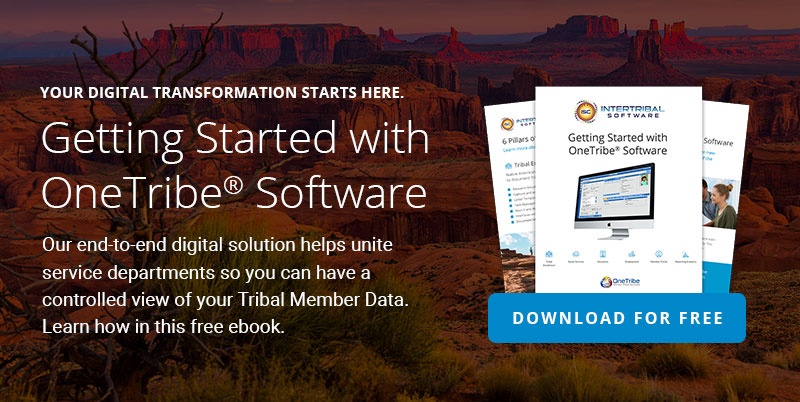
Clear data governance principles are essential for Tribal Governments, just as they are for any other type of organization. These protocols provide a framework for collecting, storing, and utilizing sensitive data consistently and reliably. Without them, your Tribal Government would be overwhelmed by security breaches and compliance violations. Read on to discover the elements of data governance frameworks and tips for establishing them.
Elements of Data Governance Frameworks
As tribal organizations handle data from their tribal populations, they must follow data sovereignty to ensure information doesn’t get processed for commercial reasons. A suitable data governance framework should ensure that your Tribal Government's data is reliable, protected, controlled, and documented.
1. Transparency
A good data governance framework should disclose the information your Tribal Government collects from individuals. The disclosure should be explicit at the point of collection, and and give individuals the right to grant or deny consent.
2. Data Integrity and Security
Beyond transparency, effective data governance principles should have guidelines to safeguard integrity and security. Mainly, your framework should have procedures for assessing the confidentiality and availability risks associated with the data collected. These risks could be unauthorized access, data breaches, or system failures.
3. Purpose Specification
Besides disclosing the data your Tribal Government collects from individuals, it’s helpful to communicate how you will utilize the collected data beyond its initial purpose. The disclosure ensures individuals know all potential uses before consenting to data collection.
4. Community Engagement
Sound data governance principles should outline whether and how communities should be engaged in making decisions about collecting specific data. The involvement ensures that data collection is lawful, ethical, and aligns with community values.
3 Tips for Establishing Data Governance Principles
Establishing data governance principles for a Tribal Government begins with assessing your current data landscape. In particular, evaluate existing data management practices to identify inconsistencies in policies. The following are some ways to formulate your data governance protocols.
- Involve the Community: When formulating data governance principles for your Tribal Government, involve your tribal members to ensure the framework reflects their needs. You can engage the community through consultation meetings or surveys.
- Ensure Data Quality: Enforce processes like data validation, cleansing, and standardization to ensure you collect and store high-quality data. Focusing on data quality upholds the integrity and reliability of your Tribal Government's data.
- Provide Training: When enforcing data sovereignty, ensure you don't overlook employee training. The training ensures staff are up to speed in matters of data policies, security protocols, and data handling best practices.
Streamline Data Governance With OneTribe
With OneTribe, you don't have to stress about formulating data governance principles. This is because our developers have designed the OneTribe member services solution to help mitigate issues, like data breaches and noncompliance, resulting from inefficient practices. Contact us to learn about OneTribe and how it can help you streamline your data governance.
Sign Up For Our Newsletter
Recent Posts
- Innovations in Housing: Revolutionizing Tribal Housing with Digital Tools for Management
- Empowering Tribal ICW Departments: Achieve ICWA Compliance and Certification Success with OneTribe® Software
- OneTribe CCA - Your Child Care Data Tracker Replacement Solution
- Transform Your Tribal Member Services With Integrated Software Solutions
- Intertribal Software Raises Strategic Investment
Categories
- OneTribe Software
- digital transformation
- tribal government software
- Laserfiche ECM
- Intertribal Software Consultants
- Childcare Assistance
- Housing Management
- Intertribal Software
- tribal member management
- AFCARS Data Collection
- Child Care Data Tracker
- Child Welfare
- Housing
- ICWA
- ICWA Compliance
- Indian Child Welfare Act
- OneTribe Platform
- Title IV-E Certification
- Tribal Data Tracker
- Tribal Family Services
- Tribal Housing
- Tribal ICWA Software
















